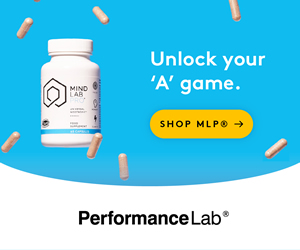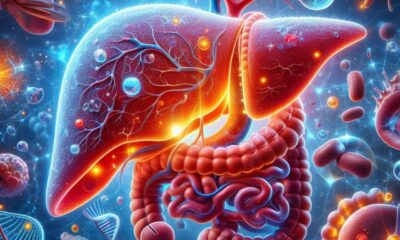Health
Unveiling the Power: Which 3 Vitamins Are Antioxidants?
Discover the power of antioxidants with vitamins A, C, and E! Learn how these essential vitamins protect your health, their sources, benefits, and recommended intake.
Have you ever wondered which vitamins pack the most punch when it comes to protecting your health? Understanding the role of vitamins in our bodies is crucial; some vitamins exhibit powerful antioxidant properties that can help keep you feeling great and staying healthy. But which three vitamins are considered antioxidants, and what makes them so special?

What Are Antioxidants?
Before diving into specific vitamins, let’s briefly discuss what antioxidants are. Antioxidants are compounds that help protect your cells from damage caused by free radicals. Free radicals are unstable molecules that can cause oxidative stress, leading to cell damage and contributing to aging and various diseases. Antioxidants neutralize free radicals and therefore play a crucial role in maintaining your health.
The Importance of Antioxidants
Antioxidants are important because they help combat oxidative stress in your body. Oxidative stress can damage your cells, proteins, and DNA, potentially leading to chronic diseases like heart disease, diabetes, and cancer. By neutralizing free radicals, antioxidants can help reduce your risk of these conditions and promote overall well-being.
Which 3 Vitamins Are Antioxidants?
There are three primary vitamins recognized for their antioxidant properties: Vitamin A, Vitamin C, and Vitamin E. Each of these vitamins offers unique benefits and is essential for maintaining optimal health. Let’s take a closer look at these powerhouse vitamins.
Vitamin A: The Visionary Antioxidant
Vitamin A is a fat-soluble vitamin that plays a crucial role in maintaining healthy vision, promoting growth and development, and supporting immune function. Its antioxidant properties make it a formidable defender against free radical damage.
Sources of Vitamin A
There are two main types of vitamin A: preformed vitamin A (found in animal products) and provitamin A carotenoids (found in plant-based foods). Here are some common sources:
| Source | Type of Vitamin A |
|---|---|
| Liver | Preformed vitamin A |
| Fish oils | Preformed vitamin A |
| Dairy products | Preformed vitamin A |
| Carrots | Provitamin A (beta-carotene) |
| Sweet potatoes | Provitamin A (beta-carotene) |
| Spinach | Provitamin A (beta-carotene) |
Benefits of Vitamin A
Vitamin A offers numerous health benefits:
- Supports Vision: Essential for maintaining good vision and preventing night blindness.
- Boosts Immune Function: Enhances the function of immune cells, helping your body fight off infections.
- Promotes Skin Health: Encourages cell turnover and helps maintain healthy skin.
Vitamin C: The Scavenging Superstar
Vitamin C, also known as ascorbic acid, is a water-soluble vitamin renowned for its potent antioxidant properties. It plays a vital role in numerous bodily functions, including collagen synthesis, wound healing, and immune support.
Sources of Vitamin C
Vitamin C is abundant in a variety of fruits and vegetables. Here are some excellent sources:
| Source | Amount of Vitamin C (per 100g) |
|---|---|
| Oranges | 53.2 mg |
| Strawberries | 58.8 mg |
| Kiwi | 92.7 mg |
| Bell peppers | 80.4 mg |
| Broccoli | 89.2 mg |
| Brussels sprouts | 85 mg |
Benefits of Vitamin C
Vitamin C offers a range of health benefits:
- Boosts Immune System: Enhances the production of white blood cells.
- Promotes Skin Health: Aids collagen production, which is essential for skin elasticity.
- Reduces Chronic Disease Risk: Neutralizes free radicals and reduces inflammation.
Vitamin E: The Cell Protector
Vitamin E is a fat-soluble vitamin that acts as a powerful antioxidant, protecting cells from oxidative stress. It is also essential for immune function and skin health.
Sources of Vitamin E
You can obtain vitamin E from a variety of foods, particularly nuts, seeds, and oils. Here are some good sources:
| Source | Amount of Vitamin E (per 100g) |
|---|---|
| Almonds | 25.6 mg |
| Sunflower seeds | 35.2 mg |
| Spinach | 2.1 mg |
| Avocado | 2.1 mg |
| Olive oil | 14.4 mg |
| Peanuts | 9.1 mg |
Benefits of Vitamin E
Vitamin E is beneficial for your health in several ways:
- Protects Cell Membranes: Shields cell membranes from oxidative damage.
- Supports Immunity: Enhances immune function.
- Promotes Skin Health: Helps in skin repair and regeneration.
How These Vitamins Work Together
The synergy between vitamin A, vitamin C, and vitamin E can amplify their antioxidant effects. For instance, vitamin C helps regenerate vitamin E, boosting its efficacy. Similarly, vitamin A’s antioxidant properties are enhanced when combined with vitamins C and E. Together, these vitamins provide a robust defense against oxidative stress.
Why a Balanced Diet Is Crucial
Consuming a diet rich in these vitamins ensures that you reap their benefits. Eating a variety of fruits, vegetables, nuts, and seeds can help you achieve the optimal intake of these essential antioxidants. A well-balanced diet not only supports your overall health but also provides the necessary nutrients to maintain your body’s antioxidant defenses.
Tips for Achieving a Balanced Diet
- Variety is Key: Incorporate a wide range of fruits and vegetables into your meals.
- Include Healthy Fats: Nuts, seeds, and oils are excellent sources of both vitamins E and healthy fats.
- Choose Whole Foods: Opt for whole, unprocessed foods to get the maximum nutrient benefit.
Potential Risks and Considerations
While these vitamins are essential for your health, it is important to consume them in appropriate amounts. Both deficiency and excess of these vitamins can lead to health issues.
Vitamin A Toxicity
Excessive intake of preformed vitamin A can lead to toxicity, causing symptoms such as nausea, headaches, and even liver damage. It is advisable to obtain vitamin A from a balanced diet rather than excessive supplements.
Vitamin C Overload
Though rare, consuming extremely high doses of vitamin C can result in gastrointestinal issues such as diarrhea and stomach cramps. It is generally recommended to stick to the daily recommended allowance.
Vitamin E Excess
High levels of vitamin E supplementation can interfere with blood clotting mechanisms, potentially increasing the risk of bleeding. It is best to consult with a healthcare provider before starting any high-dose supplements.

Recommended Daily Allowance
Knowing the recommended daily allowance (RDA) for these vitamins can help you ensure you’re getting the right amount without overdoing it. Here are the RDAs for different age groups:
| Vitamin | Men (19+) | Women (19+) | Pregnant Women | Lactating Women |
|---|---|---|---|---|
| Vitamin A | 900 mcg RAE | 700 mcg RAE | 770 mcg RAE | 1,300 mcg RAE |
| Vitamin C | 90 mg | 75 mg | 85 mg | 120 mg |
| Vitamin E | 15 mg | 15 mg | 15 mg | 19 mg |
Conclusion
Antioxidants are essential in protecting your body against oxidative stress, and vitamins A, C, and E are key players in this process. By incorporating foods rich in these vitamins into your diet, you can boost your antioxidant defenses and enjoy a range of health benefits. Remember, balance is key, and it’s always best to obtain these vitamins from a varied and nutritious diet.
Understanding the power of vitamins as antioxidants can help you make informed dietary choices, supporting your health and well-being for years to come. So go ahead and make these antioxidant-rich vitamins a part of your daily routine, and experience their life-enhancing benefits.
Would you like to explore the fascinating world of antioxidants further, or do you have other health-related questions on your mind?

















